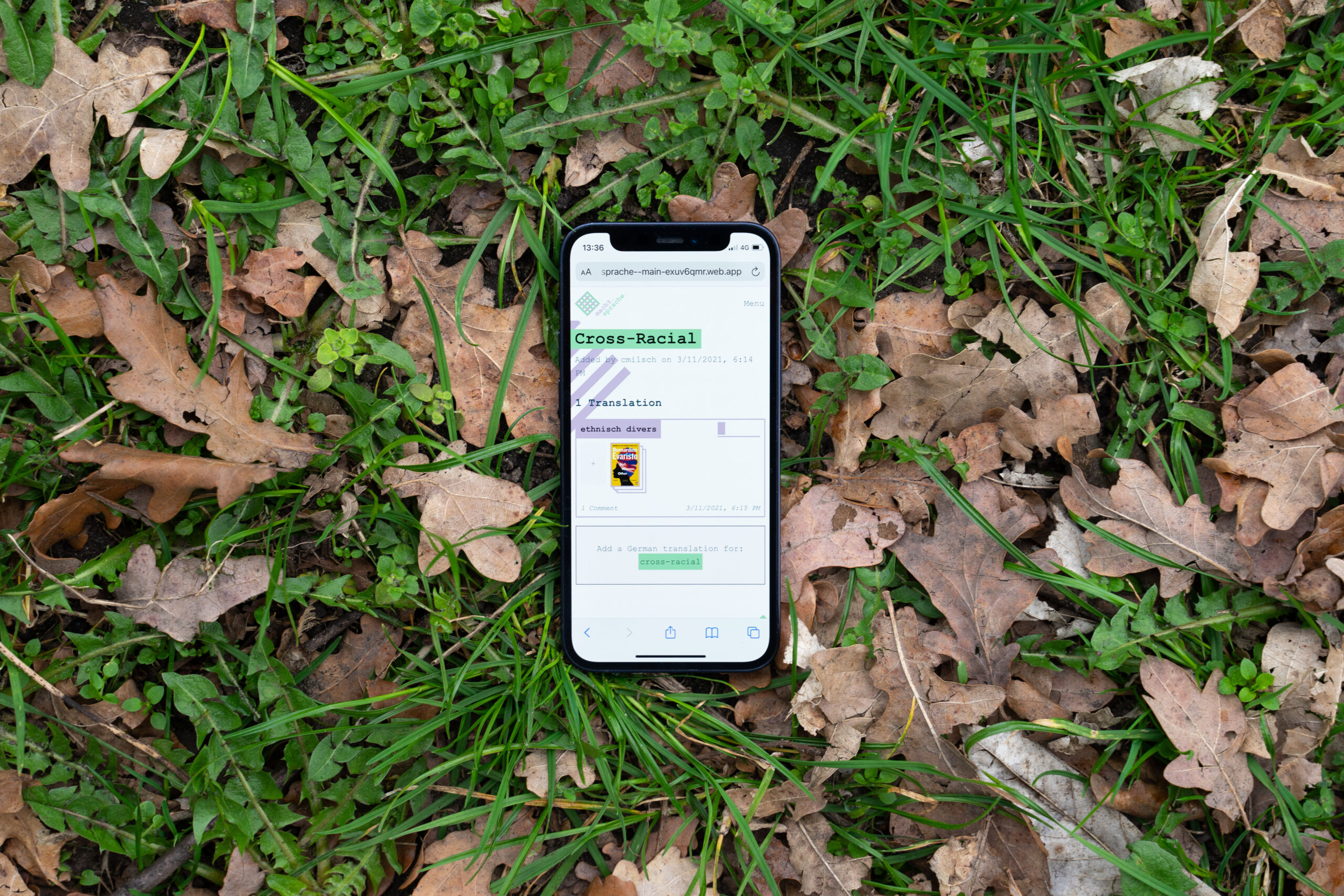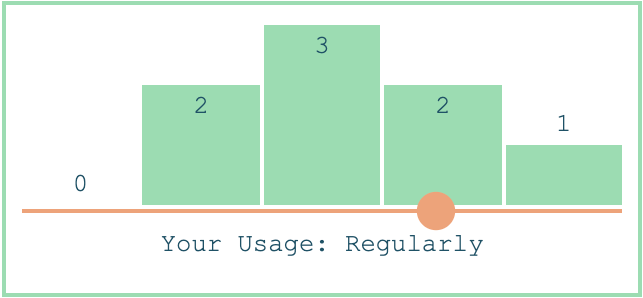
macht.sprache.: Behind the scenes – on the code of conduct, assessing translations and getting involved
At the beginning of March, we shared with you some of the behind the scenes workings of our macht-sprache. / case.sensitive. project.: curated by us, the editors of poco.lit. and implemented by Timur Celikel and Kolja Lange. We presented our deliberations on design and accessibility, user profiles and data use, and our considerations in dealing with sensitive terms. This week, we’d like to share with you some of the thoughts that went into the development of a code of conduct for the discussion platform, the assessment system for translation examples, and how we’re hoping to motivate people to participation.
macht.sprache. / case.sensitive is structured in three phases. We kick-off in April with collaboratively collecting and discussing politically sensitive terms and translation examples. We will continue in May and June with public events with experts to gain further insights. You are warmly invited to participate in both of these phases by taking part in the discussion, adding terms and translation examples from books, newspapers, movies, theatre subtitles, etc., and attending the public events. Phases one and two aim to collaboratively produce knowledge, which is an important part of our approach because a variety of voices speaking from multiple positionalities are crucial to a sensitive understanding of how language and discrimination affect people differently. Our collective efforts will flow into the final phase in which we’ll develop a tool that will be conceptually curated and technically developed by the project team. This tool will serve as a resource to better translate sensitive terminology.
Code of Conduct
Once you have registered and have a user profile on macht.sprache. / case.sensitive, you can contribute to the discussion. The platform strives to be a space for constructive collaboration that is founded in mutual respect. Harmful and discriminatory comments will not be tolerated – but we know that we will never be able to create an entirely safe space. Discussions about politically sensitive subjects like discriminatory and/or inclusive language quickly become emotional or even heated, and possibly hurtful. In order to strengthen respectful interaction, we are therefore drafting guidelines for the communication that users agree to when registering. Since we envision the development of the translation tool as a collaborative process, we will participate in the discussion on the platform and develop it further in the course of its use based on your comments, the most prominent topics that arise, and how we interact with each other.
For the launch of the first phase, we have put together a code of conduct that centres around three principles: mutual respect, constructive collaboration, and self-positioning. Mutual respect doesn’t mean everyone has to agree on everything all the time, but it does mean that disagreements should be expressed with sensitivity and consideration.
By aiming for constructive collaboration, we hope to foster an open and productive discussion culture that is not invested in public shaming or assuming expert knowledge. The point is to develop understanding together. And when we highlight self-positioning, we do so in the hopes of encouraging users to consider the position they speak from, how this might affect their views on different issues, and how this might help others understand where they’re coming from.
We are acutely aware of the dangers of trolling, but also want to act in good faith that there is a community out there that wants to engage sincerely and constructively in these discussions. But we also want to protect users as much as we can, and so we will moderate commentary, deleting comments we deem harmful, retain the right to suspend user accounts after a first warning, and put in place a mechanism whereby users can report harmful comments.
Assessing Translations
In order to develop the final translation aid in phase three at the end of the year and make recommendations for the translation of sensitive terms, we want to draw on the collective knowledge of all contributors. The discussions and terms entered in the first phase will feed into the final tool. As such, it makes sense that we ask users to assess translations from the beginning – we want to ask you: Which translations would you be in favour of, and which not.
While creating the platform for the first phase, we’ve had quite a bit of discussion about assessment. First, we looked at the rating systems of other online platforms. Youtube offers ‘thumbs up’ for good and ‘thumbs down’ for bad, which seemed a bit too simplistic for our purposes. Many online stores invite you to give products 1-5 stars to rate their quality, which already allows for a bit more specificity. Newspapers often offer digital opinion polls on a sliding scale where a pin can be freely moved back and forth between what readers would endorse and what they wouldn’t. A rating system in this last form seemed most appropriate to us.
In our discussions, it became clear that we don’t actually want to classify specific words as “good” or “bad.” Rather, it’s about how appropriate they are – and whether a given participant thinks a specific term is a good translation under certain circumstances. Context always matters in translation – be it geographic, historical, political, social or other. That’s why we came to the decision that the question of assessment should be phrased to ask how often you would make use of it. Users can then explain their ranking with a comment.

The next question is how to present the results. The most obvious solution here is the average or median. However, this could get lost if some terms are very polarizing: A term with five ratings “1” and five ratings “5” has an average of “2.5”. But a term with many ratings “2” and “3” also has an average of “2.5”. An average obscures these differences. This is why we decided to use a bar graph:

Get involved!
The collaborative knowledge production that is key to macht.sprache. / case.sensitive. means that we are deeply invested in your participation. At a brief early test run, we discovered an initial hesitation to participate in the discussion. Often, this seemed to stem from a concern that users didn’t have enough expertise to share their opinions. Precisely because part of our intention with macht.sprache. / case.sensitive. is to develop a discussion culture about politically sensitive language that is not confined to elitist spaces, we’re trying to think of ways to encourage people to think of this as a project they can get involved in.
To this end, we want to actively engage a community through our social media presence, regularly posting selected content from the platform. We’re looking into book give-aways to reward participation and are developing a newsletter that can keep you posted about developments. If you have ideas about what would motivate you to to get involved, please get in touch with us, over social media or email – we’d love to hear your ideas.
We will launch macht.sprache. / case.sensitive. on April 14. You are warmly invited!
macht.sprache. / case.sensitive. is supported by the Berlin Senate.
